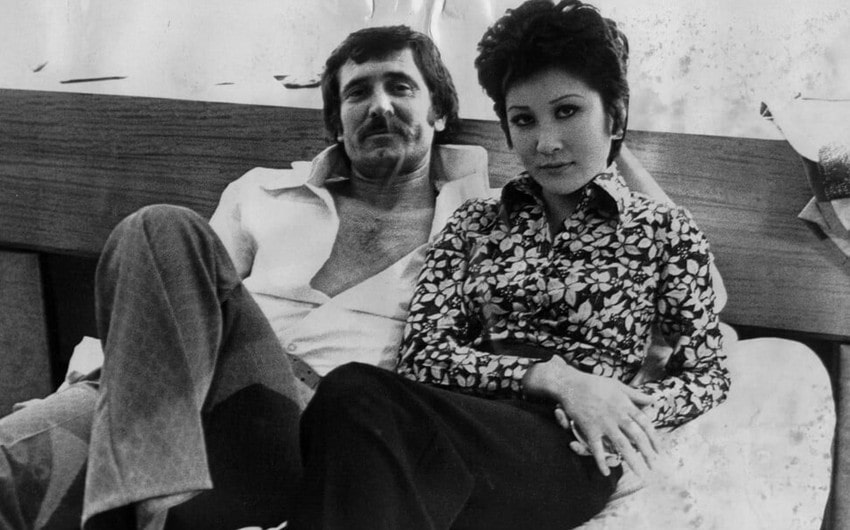What Is Betty Ting Pei’s Net Worth and Her Impact on Film History?
You’ve probably heard her name connected to one of the most mysterious moments in martial arts history, but there’s much more to her story than just one chapter. So what is Betty Ting Pei’s net worth, and how did her career in film and her unexpected role in the life—and death—of Bruce Lee shape her long-term financial picture? Her life is one of cinematic highs, tabloid intrigue, and the quiet power of longevity in the public eye.
Who Is Betty Ting Pei?
Betty Ting Pei was born Tang Mei-li on February 19, 1947, in Taiwan. She came from a well-regarded military family and began her journey into entertainment in the late 1960s, at a time when Hong Kong and Taiwanese cinema were flourishing. After signing with Shaw Brothers Studio—one of the most powerful film production companies in Asia during that era—she quickly became known for her beauty, screen presence, and her roles in romantic dramas and martial arts films.
Though not a trained martial artist herself, Betty often appeared alongside action stars in films that mixed love stories with high-stakes conflict. She worked steadily through the late ’60s and early ’70s, appearing in over 30 films. Her most successful roles showcased her as a soft but emotionally complex character, often playing the romantic lead or a woman caught in tragic circumstances.
However, what catapulted her into international headlines was something far more personal and tragic. In July 1973, Bruce Lee—the global martial arts icon—died in Betty Ting Pei’s apartment in Hong Kong. According to reports, Lee had gone to her residence to rest before a meeting and never woke up. The cause of death was listed as cerebral edema, or brain swelling. While authorities ruled it a medical incident, conspiracy theories quickly spread, and the fact that Lee died at Betty’s home became a focal point in the media for years.
In the wake of Bruce Lee’s death, Betty Ting Pei’s fame surged, but in a way that was both difficult and intrusive. Her career in film never fully recovered, though she remained in the public consciousness. Eventually, she stepped away from acting and chose a more private life, occasionally speaking about her relationship with Bruce Lee and even penning a memoir. Through it all, she retained an air of mystery, which only added to her lasting appeal.
A Clear Breakdown of Betty Ting Pei’s Net Worth
As of 2025, Betty Ting Pei’s net worth is estimated to be between $2 million and $5 million. While she’s not an active star in the entertainment world today, her financial standing is the result of decades of work in film, media appearances, property holdings, and residual fame from one of the most talked-about stories in pop culture history.
Acting Career Earnings
During her active years in the Hong Kong and Taiwanese film industries, Betty Ting Pei starred in numerous films, many of which were distributed across Asia. She was a signed actress under the Shaw Brothers Studio—an empire that ruled Asian cinema during the 1960s and ’70s. Actors under contract typically worked on multiple projects a year and were paid per film or via salary-style agreements, depending on their role in the studio system.
Although Shaw Brothers actors were not always paid Hollywood-level salaries, lead actresses like Betty were considered valuable assets and often earned respectable incomes, especially if their films did well in box offices across Hong Kong, Taiwan, and Southeast Asia. Over the course of her film career, it’s likely that Betty earned the equivalent of hundreds of thousands of U.S. dollars, adjusted for inflation.
She continued to receive some royalties or residual payments when her older films were re-released on DVD, aired on specialty TV channels, or made available on digital platforms for retro cinema enthusiasts. While these payments are likely modest, they still contribute to her passive income.
Publicity and Media Appearances
Even after her acting career slowed, Betty Ting Pei continued to be a figure of public interest due to her connection to Bruce Lee. She appeared in a number of documentaries, interviews, and retrospectives that explored the life and sudden death of the martial arts legend. Some of these appearances were compensated, especially those produced for international audiences or tied to significant anniversaries of Lee’s passing.
Betty has also released her own memoir, which included intimate details about her relationship with Bruce Lee and her personal reflections on fame and loss. While the book was polarizing—praised by some and criticized by others—it sold well in Asia, especially among readers curious about the behind-the-scenes life of Hong Kong’s golden age of cinema.
Earnings from the memoir and related media coverage have added to her net worth, although she has not actively pursued a sustained career in publishing or television since. That said, the occasional appearance at film festivals, retrospectives, or on legacy talk shows has kept her connected to the industry without the demands of full-time celebrity life.
Real Estate and Personal Investments
Another important factor in Betty Ting Pei’s net worth is her real estate holdings. Reports suggest that she has owned property in both Hong Kong and Taiwan—two markets known for their high property values, particularly in major cities. Her longtime residence in Hong Kong, the site of Bruce Lee’s death, became both a landmark and a point of controversy. Though she later moved, the property itself appreciated significantly over the years, as is common in Hong Kong’s real estate market.
Property ownership in such regions can contribute millions to one’s net worth, especially when held for decades. Even modest apartments in Hong Kong’s urban districts can sell for over $1 million USD today. If she invested wisely or maintained ownership of more than one property, the real estate component of her wealth could account for a large portion of her net worth estimate.
In addition to real estate, it’s reasonable to assume that Betty invested in savings, stocks, or retirement accounts over time. Given her reduced public lifestyle in later years, it’s likely that she managed her earnings conservatively, preserving wealth rather than spending it lavishly.
Featured Image Source: scmp.com







